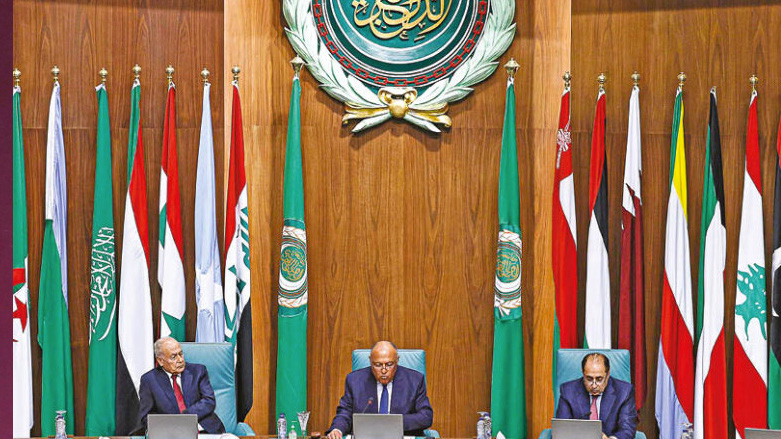U.S. Reiterates Opposition to Normalization of Ties with Syria; Will Retain Sanctions

WASHINGTON DC, United States (Kurdistan 24) – Following a decision of the Arab League on Sunday to readmit Syria, after its membership in the organization had been suspended in November 2011, the State Department reiterated U.S. opposition to the move, even as it also explained that the U.S. has been in regular contact with its Arab partners that have been involved in promoting Syria’s return.
All the Arab Foreign Ministers who attended Sunday’s Arab League meeting voted in favor of returning Damascus to the group. However, just thirteen of the twenty-two members of the Arab League were in attendance.
Read More: Arab governments vote for Syria's return to the Arab League
Although the decision was supported by only a narrow majority, key Arab states generally aligned with the U.S., including, Egypt, Iraq, Jordan, Saudi Arabia, and the United Arab Emirates, all played critical roles in securing Syria’s re-admission
The Arab countries claimed that, through dialogue, they will be better able to achieve key goals, like securing a political resolution to Syria’s civil war, as opposed to the confrontational approach the U.S. has long pursued. Washington, however, disagrees.
U.S. Understands Arab League Position, but is Skeptical
Following the Arab League vote, Kurdistan 24, on Sunday, asked the State Department for comment. A Spokesperson responded that day, explaining, in essence, that the U.S. shared the same goals as its Arab partners, but did not think those objectives could be achieved through a conciliatory approach to Damascus.
“We do not believe Syria merits readmission into the Arab League at this time, a point we have made with all of our partners,” the Spokesperson said.
But the Spokesperson also stressed the commonalities between Washington’s position and that of its Arab partners.”We share many of the same goals” with respect to Syria, “including reaching a solution to the Syrian crisis consistent with [U.N.] Security Council Resolution 2254 [UNSCR 2254]”—which was passed in December 2015 and calls for a Syrian ceasefire and “an inclusive and Syrian-led political process that meets the legitimate aspirations of the Syrian people.”
In addition, there are quite a few other goals held by the U.S. and its Arab partners with respect to Syria, which the State Department Spokesperson listed. Their very number underscores the serious challenges that the regime of Bashar al-Assad poses.
They include, according to the Spokesperson, “expanding humanitarian access to all Syrians in need; building security and stability to ensure ISIS cannot resurge; creating the conditions for eventual refugee returns; clarifying the fate of detainees and the missing; reducing Iranian influence; and countering captagon trafficking from Syria.”
“We understand our partners intend to use direct engagement with the Assad regime” to “demand progress in these areas,” the Spokesperson continued, and “while we are skeptical of Assad’s willingness to take the steps necessary,” we are, nonetheless, “aligned with our Arab partners on the ultimate objectives.”
At the same time, the Spokesperson re-affirmed the established U.S. position, explaining that Washington had “been clear that we will stand by our core sanctions principles” and “we will not normalize” our relations with the Assad regime, while “our sanctions remain in full effect.”
“We continue to believe that a political solution as outlined in UNSCR 2254 remains the only viable solution to the conflict,” the Spokesperson concluded, and we “are working with our allies, likeminded partners, and the UN to implement UNSCR 2254.”
